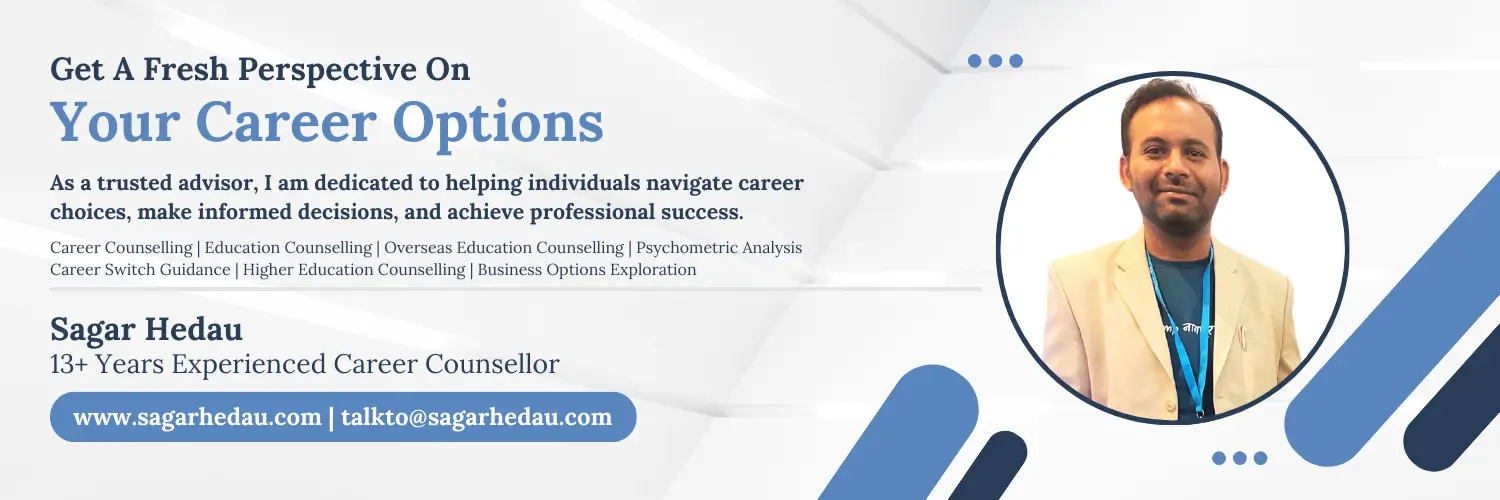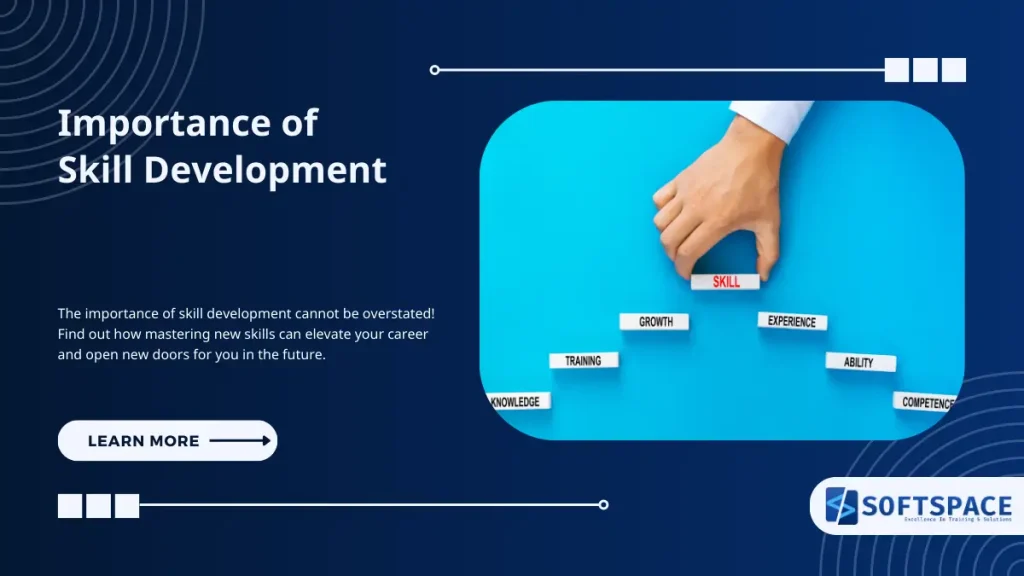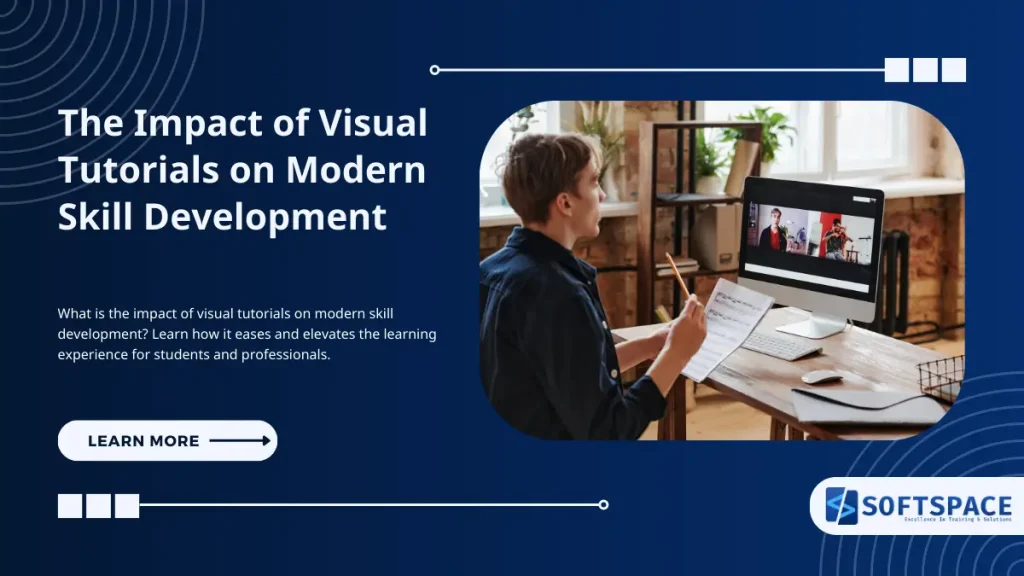What is the importance of Skill Development in 2025?
Skill development is critical because 58% of the workforce needs new skills, job skill sets change by 25% every 2 years, and skilled professionals earn 40% more than their peers. By 2030, 1 billion people will need reskilling due to technological changes, making continuous learning essential for career survival.
The skills’ half-life in technology has dropped to just 2.5 years, meaning half of your current skills will become obsolete by 2027. Organisations investing in employee skill development report 23% higher revenue growth and 6x better employee retention compared to those that don’t.
2025 Skill Development Impact:
- Skilled workers earn 40% more than their non-skilled counterparts
- 90% of employees need to update skills annually to remain relevant
- Companies with skill-first hiring expand talent pools by 10x globally
- ROI of reskilling: ₹7 return for every ₹1 invested in employee development
Future-Proofing Statistics: Professionals who engage in continuous skill development are 67% less likely to face job displacement and have 2.3x faster career progression. The most in-demand skills in 2025 include AI/ML, cloud computing, data analysis, and digital marketing, with professionals in these areas commanding 35-50% salary premiums.

Importance of Skill Development in the Modern Age
The importance of Skill Development has to be taken seriously. Sills, whether technical or soft, are essential traits for achieving success in the workplace. Developing transferable skills can significantly enhance your competitiveness and adaptability in your professional journey.
Along with skill development, some targeted corporate training solutions can play a pivotal role in bridging skill gaps, enabling employees to stay competitive and aligned with the dynamic demands of the modern workforce.
By understanding the relevance of key skills, their impact, and practical ways to cultivate them, you can continually improve yourself for personal and professional growth. In this article, we explore the significance of skill development, outline some valuable skills to focus on, and share actionable tips to help you refine and expand your skill set.
Skills to Enhance Your Personal and Professional Growth
1. Communication
Effective communication is the foundation of successful personal and professional interactions. It involves expressing ideas clearly, actively listening, and understanding non-verbal cues. Improving communication skills fosters better relationships, reduces misunderstandings, and enhances teamwork, making you a more efficient and approachable professional.
2. Interpersonal Skills
Interpersonal skills enable you to build strong relationships and collaborate effectively with others. These include empathy, teamwork, and conflict resolution. By improving interpersonal skills, you can create a positive work environment, navigate social dynamics, and establish meaningful connections that benefit both your career and personal life.
3. Problem-Solving
Problem-solving skills involve analysing situations, thinking critically, and developing effective solutions. These skills are vital for addressing challenges, making decisions, and improving processes. Enhancing problem-solving abilities allows you to tackle obstacles with confidence, contribute to innovation, and demonstrate your value in any role.
4. Organisational Skills
Strong organisational skills help you prioritise tasks, manage time effectively, and maintain focus on goals. They are crucial for meeting deadlines, reducing stress, and improving productivity. By honing organisational abilities, you can handle complex responsibilities and contribute to the smooth operation of your workplace.
5. Adaptability
Adaptability is the ability to adjust to change, embrace new challenges, and remain resilient in uncertain situations. In a rapidly evolving world, this skill ensures you stay relevant and capable of thriving in dynamic environments. Developing adaptability helps you navigate transitions with ease and seize new opportunities.
6. Self-Confidence
Self-confidence is believing in your abilities, making decisions with assurance, and presenting yourself with poise. It directly impacts your performance, leadership potential, and ability to inspire trust in others. Strengthening self-confidence can boost your career prospects and help you overcome challenges more effectively.
7. Work Ethics
Work ethics encompass reliability, dedication, and professionalism. Employers value individuals with strong work ethics as they are dependable and committed to achieving excellence. By improving your work ethic, you demonstrate integrity, build trust, and enhance your reputation as a reliable professional.
8. Leadership
Leadership involves inspiring, motivating, and guiding others toward achieving shared goals. It is a combination of vision, decision-making, and accountability. Strengthening leadership skills helps you take initiative, build high-performing teams, and create a lasting impact in your organisation and community.
Improving these soft skills can significantly elevate your personal growth, career prospects, and overall quality of life, making you a well-rounded and impactful individual.

Understanding the Importance of Skill Development
The concept and importance of skill development has transformed dramatically from its traditional roots. No longer confined to classroom learning or periodic training sessions, today’s skill development represents a continuous journey of growth that adapts to technological advances and changing market demands.
Modern learning approaches now include:
- Hybrid Learning Systems: Seamlessly blending virtual and in-person training for maximum effectiveness
- AI-Powered Personalization: Creating adaptive learning paths based on individual progress and needs
- Immersive Technologies: Utilizing VR/AR for hands-on experience in risk-free environments
- Microlearning: Delivering bite-sized content for efficient skill acquisition
- Peer Learning Networks: Facilitating knowledge sharing across global teams
- Soft Skills Training: Communication, presentation and similar soft skills are a firm requirement in the modern learning world.
Steps to Kickstart Your Skills Development
- Evaluate Your Current Skills
Before diving into skill development, take a moment to assess where you currently stand. This involves reflecting on your strengths and areas that need improvement. For example, if you’re looking to improve communication skills, you might ask yourself: “Do I express my thoughts clearly in meetings? Do I actively listen to others?” You can also seek feedback from colleagues, supervisors, or mentors to get a more objective view of your skills. - Set Specific Goals
Once you’ve assessed your skills, set clear and actionable goals. For example, if you want to improve your leadership skills, your goal could be: “I will lead at least one team project within the next three months to enhance my leadership abilities.” Ensure your goals are SMART (Specific, Measurable, Achievable, Relevant, and Time-bound), so you can track your progress effectively. - Create a Structured Plan
A structured plan helps break down your goals into manageable tasks. For example, if you’re working on time management, your plan might include:- Week 1: Research time management strategies (such as the Pomodoro technique).
- Week 2: Implement the technique for one week and track your productivity.
- Week 3: Evaluate your progress and adjust the technique as needed.
This structured approach helps you stay focused and ensures you cover all areas of skill development.
- Acquire Knowledge and Resources
Learning the theory behind a skill is essential, but so is applying it. Suppose you’re aiming to develop problem-solving skills. You could take an online course on critical thinking, read books like “The Lean Startup”, and attend webinars or workshops. But also, look for opportunities to practice your knowledge. For example, challenge yourself by taking part in a hackathon or engaging in group brainstorming sessions where you can apply what you’ve learned in real-time. - Practice Consistently
Consistency is key to developing any skill. Take communication, for example. To improve, make it a habit to engage in public speaking, participate in discussions, and practise active listening regularly. You could volunteer to present at meetings, join a Toastmasters club, or engage in discussions during team brainstorming sessions. The more you practice, the more natural and effective your communication will become. - Request Feedback
Feedback is an essential tool for refining your skills. Let’s say you are focusing on teamwork. After a project or task, ask your colleagues questions like: “What could I have done better in our group discussions?” or “Did I contribute to resolving conflicts effectively?” This feedback allows you to pinpoint areas of improvement and make the necessary adjustments. - Track Your Progress
Regularly monitoring your progress keeps you motivated and ensures you’re moving in the right direction. For example, if you are working on organisational skills, you could track your daily task completion rate, measure how often you meet deadlines, or use tools like Trello or Asana to stay organised. At the end of each week or month, assess whether you’ve improved your efficiency and where there’s room for further growth. - Be Consistent and Patient
Skill development is a gradual process, and consistency is crucial. For example, if you’re working on improving your adaptability, start small by taking on new challenges at work, such as adjusting to new software or tackling tasks outside your usual responsibilities. Over time, you’ll build your resilience to change. Remain patient and focused, as skill improvement takes time and persistence. - Stay Adaptable
As you develop new skills, your professional environment may change, and your goals may evolve. For example, if you are enhancing your leadership skills, the dynamics of the team you lead might shift. Be open to adjusting your leadership style to better fit the needs of the team. Flexibility in your approach allows you to stay relevant and effectively tackle new situations or challenges. - Share What You’ve Learned
Teaching others is a powerful way to solidify your understanding of a skill. For example, if you’ve improved your problem-solving skills, share strategies with colleagues during a meeting or mentor a new employee. By teaching, you not only reinforce your knowledge but also create a positive learning environment within your team or organisation. It’s also an opportunity to get new insights or suggestions from others that could further improve your skills.
Implementing Effective Skill Development by overcoming challenges
We can and we need to overcome certain challenges and mistakes to build our skills. A lot of procrastination, overthinking and fear are responsible for this, but the following factors impact a lot:
Lack of Time
Challenge: Balancing skill development with a busy work schedule, personal life, and other commitments can be difficult.
Solution: Set aside dedicated time for learning and practice. This could be as simple as dedicating 30 minutes a day to reading, taking an online course, or practising your skills. Use tools like calendars or reminders to schedule this time, and prioritise learning just as you would any other task. Even small, consistent efforts can add up over time.
Overwhelmed by Too Many Skills to Develop
Challenge: Trying to improve too many skills at once can lead to burnout and a lack of progress in any one area.
Solution: Focus on one or two skills at a time. Break them down into smaller, manageable chunks. For example, if you’re working on communication and problem-solving, start with one aspect of each (e.g., improving listening for communication and brainstorming for problem-solving) before expanding your focus. Once you feel comfortable with one skill, move on to the next.
Lack of Motivation
Challenge: Staying motivated can be tough, especially when progress is slow or results are not immediately visible.
Solution: Set clear, achievable goals and celebrate small wins. For instance, if you are working on leadership skills, aim to lead a small team project and celebrate the successful completion of each stage. Tracking your progress visually, such as through a journal or progress chart, can also help you stay motivated and see how far you’ve come.
Limited Access to Resources
Challenge: Sometimes, the resources you need for skill development—like courses, mentors, or tools—may not be easily accessible due to budget, location, or other constraints.
Solution: Take advantage of free or low-cost resources. Many online platforms like Coursera, edX, and YouTube offer free courses on a wide variety of topics. Join online communities, attend webinars, or reach out to peers or colleagues who can offer advice and mentorship. Additionally, public libraries and community centres may provide free workshops or resources.
Fear of Failure or Lack of Confidence
Challenge: The fear of failure or self-doubt can hinder you from taking the first step in skill development.
Solution: Shift your mindset from a fear of failure to viewing challenges as opportunities for growth. Practice self-compassion and understand that making mistakes is part of the learning process. Start with small, low-risk tasks to build your confidence. For example, if you’re nervous about public speaking, start by speaking in front of a small group before gradually moving to larger audiences.
Difficulty in Retaining New Knowledge
Challenge: After investing time in learning something new, you may struggle to retain or apply that knowledge effectively.
Solution: Reinforce learning by practising regularly. Use techniques like spaced repetition to help retain information over time. Applying new knowledge in real-life situations will also help you internalise it. For instance, if you’re learning a new software, practice using it in your daily work tasks. Discuss the concepts with peers or teach them to others to deepen your understanding.
Procrastination
Challenge: Delaying the start of skill development because it feels daunting or unappealing.
Solution: Break tasks into smaller, more manageable steps and set specific deadlines for each. Instead of thinking of skill development as one large goal, focus on the first step and tackle it right away. For example, if you want to improve your time management skills, start by creating a simple to-do list for the day rather than overthinking the entire process.
Imposter Syndrome
Challenge: Feeling like you don’t belong or that you’re not capable of developing new skills can undermine your progress.
Solution: Acknowledge that imposter syndrome is common, especially when stepping out of your comfort zone. Remind yourself that everyone starts somewhere, and no one becomes an expert overnight. Surround yourself with supportive people who encourage your growth. Reframe negative self-talk and focus on your strengths and achievements to boost your self-esteem.
Inadequate Support from Others
Challenge: Lack of support from peers, managers, or mentors can make skill development feel isolating or overwhelming.
Solution: Take the initiative to seek support. Engage with communities—whether online or in-person—that are focused on the skills you’re developing. For example, if you’re working on improving leadership skills, join a leadership group or network with colleagues who can provide guidance. If possible, discuss your development goals with your manager and ask for opportunities to apply new skills in your job.
Unclear or Unrealistic Expectations
Challenge: Setting goals that are either too vague or too ambitious can lead to frustration and lack of progress.
Solution: Ensure that your goals are clear, specific, and realistic. Break them down into smaller steps, and adjust your expectations as needed. For example, if your goal is to become a better manager, start with clear objectives like improving your communication skills with your team or learning how to delegate tasks effectively. Reassess your goals periodically to ensure they remain achievable and aligned with your progress.
The Best Advantages of Skill Development
- Enhanced Career Opportunities
Developing new skills opens up more job opportunities and increases your employability. As industries evolve, employers look for individuals who are adaptable and capable of taking on new challenges. For example, mastering digital marketing skills can make you a valuable asset in a variety of industries, increasing your chances of securing a rewarding job or promotion. - Increased Confidence
Acquiring new skills boosts your self-esteem and confidence. As you gain proficiency in a particular area, you become more self-assured in your abilities, whether it’s speaking publicly, managing a team, or solving complex problems. This confidence translates into better performance at work and personal growth. - Improved Job Performance
With developed skills, your efficiency and effectiveness in performing tasks improve significantly. Whether it’s mastering new software, improving communication, or refining time management, stronger skills help you complete tasks faster and with higher quality, making you an invaluable team member. - Adaptability to Change
As industries, technology, and workplaces change, those with diverse and updated skills can more easily adapt to new situations. For example, the rise of artificial intelligence has led to the need for workers with data analysis and programming skills. Continuous skill development allows you to stay relevant in an ever-changing job market. - Higher Earning Potential
Skill development often leads to higher pay. Specialised skills are often in high demand and can command a premium salary. For instance, someone with advanced coding skills or expertise in project management may be offered higher wages compared to someone with basic or outdated knowledge. - Increased Job Satisfaction
When you develop skills, you take on more responsibilities and achieve a higher level of performance, leading to greater job satisfaction. Moreover, having a sense of growth and progression in your career brings fulfillment and reduces feelings of stagnation, which can often cause frustration or burnout. - Better Decision-Making
Strong problem-solving and critical thinking skills allow you to make better decisions. With experience and developed skills, you can assess situations more thoroughly, weigh alternatives, and make informed choices that benefit your work and personal life. For instance, improved negotiation skills can lead to more effective contracts or agreements in business deals. - Networking and Relationship Building
As you improve interpersonal skills, you strengthen your ability to network and build relationships. Building rapport with colleagues, clients, or stakeholders can open doors to new collaborations, business opportunities, and career advancements. Effective communication and empathy can lead to a more collaborative and harmonious workplace. - Personal Growth and Fulfillment
Skill development is not just about professional benefits—it also contributes to personal growth. Learning new skills fosters a growth mindset and encourages lifelong learning. For example, learning a new language or developing creative abilities like photography can boost your confidence and expand your horizons outside of work. - Increased Productivity
With improved skills, you can perform tasks more quickly and accurately. Time management, organisational skills, and efficient use of technology can significantly boost your productivity, making you more effective in meeting deadlines and achieving goals. - Better Work-Life Balance
As you develop organisational and time management skills, you can better balance work and personal life. The ability to prioritise tasks, delegate effectively, and manage your workload reduces stress and frees up time for personal pursuits and relaxation. - Leadership and Growth Potential
Developing leadership skills can prepare you for managerial roles and higher responsibilities. Leaders who have strong communication, decision-making, and problem-solving abilities are more likely to advance in their careers. By improving these skills, you position yourself as someone who can lead teams and projects to success.
The importance of skill development cannot be stressed enough. Skill development is a powerful tool that brings a range of personal, professional, and financial benefits, helping you build a successful, fulfilling career and life.
Stats Defining The Importance of Skill Development
| Statistic | Source | Key Point |
|---|---|---|
| 1 billion people need reskilling by 2030 due to technology changes. | WEF, 2020A | Technology will require reskilling for 1 billion people. |
| 58% of the workforce needs new skills for their jobs. | Gartner, 2021 | Majority of workers need new skills. |
| Job skill sets have changed by 25% since 2015, expected to double by 2027. | LinkedIn, 2022A | Rapid skill changes in the workforce. |
| 70% of workers expect generative AI to impact business models and require new skills. | PWC, 2024 | AI will drive competition and skill changes. |
| 77% of executives agree on helping workers gain relevant skills, but only 5% invest enough. | Deloitte, 2022A | Executives acknowledge skill gaps but lack investment. |
| 80% agree jobs are no longer the best way to organize work; focus on projects and outcomes. | Deloitte, 2022B | Emphasis on work structure beyond traditional jobs. |
| 21% increase in job postings listing skills over qualifications in 2021. | HBR, 2021 | Shift towards skills-based job listings. |
| 45% of hirers used skills data to fill roles in 2022-2023; 19% of US job postings no longer require degrees. | LinkedIn, 2023 | Skills data is increasingly used in hiring, and degree requirements are decreasing. |
Benefits of Skill Based Approach
| Statistic | Source | Key Point |
|---|---|---|
| Organizations with a skills-based approach are 63% more likely to achieve results. | Deloitte, 2022B | Skills-based organizations achieve better results. |
| Skills-based organizations are 57% more likely to be agile. | Deloitte, 2022A | Skills-based approach enhances organizational agility. |
| Skills-based hires have 9% longer tenure than traditional hires. | BCG, 2023 | Skills-based hires stay longer at organizations. |
| Talent pools expand 10x globally with a skills-first approach; 19x in the US. | LinkedIn, 2023 | Skills-first approach greatly increases talent pool. |
| Skills-based hiring reduces turnover; employees without a degree stay 34% longer. | LinkedIn, 2021 | Skills-based hiring leads to better employee retention. |
| Companies excelling at internal mobility retain employees for 5.4 years, nearly twice as long as others. | LinkedIn, 2022 | Internal mobility linked to higher employee retention. |
| Workers who make an internal move have a 75% chance of staying; 56% for those who haven’t. | LinkedIn, 2023 | Internal moves increase employee retention. |
| 79% of L&D professionals agree it’s cheaper to reskill employees than hire new ones. | LinkedIn, 2022 | Reskilling current employees is more cost-effective than hiring. |
| 65% of workers say job-required skills have changed in the last two years. | Deloitte, 2022B | Workers see a shift in job skills over time. |
| 58% of employees believe job-required skills will change significantly in the next five years. | WEF, 2024 | Workers expect significant skill changes in the future. |
| 73% of employees believe organizations are responsible for workforce development. | Deloitte, 2022 | Workers expect organizations to lead workforce development. |
| 79% of workers are willing to share skills data to help match them to work. | Deloitte, 2022B | Workers are open to sharing skills data for better work matching. |
| 46% of workers feel their formal qualifications are irrelevant to their job. | WEF, 2024 | Workers believe qualifications don’t always match job requirements. |
| 90% of workers say they need to update their skills at least yearly. | Deloitte, 2022 | Workers acknowledge the need for continuous skill updates. |
| Employees whose skills are underused are 10x more likely to job hunt. | LinkedIn, 2022 | Underutilized skills lead to higher turnover. |
| 47% of workers think their company is investing in their development, while only 34% of executives are satisfied with investment. | Deloitte, 2020A | Many workers feel their companies aren’t investing enough in development. |
Conclusion
In 2025’s rapidly evolving workplace, skill development has become an indispensable element of both individual and organizational success. The ability to continuously adapt, learn, and grow is no longer optional but essential for survival and growth in the modern economy.
Organizations and individuals who embrace comprehensive skill development strategies while leveraging cutting-edge learning technologies will find themselves best positioned for success in an increasingly competitive global marketplace. The future belongs to those who recognize that learning is a lifelong journey and actively invest in their development.

13+ Yrs Experienced Career Counsellor & Skill Development Trainer | Educator | Digital & Content Strategist. Helping freshers and graduates make sound career choices through practical consultation. Guest faculty and Digital Marketing trainer working on building a skill development brand in Softspace Solutions. A passionate writer in core technical topics related to career growth.



